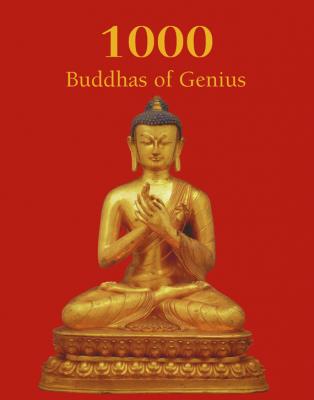1000 Buddhas of Genius. Victoria Charles
Читать онлайн.| Название | 1000 Buddhas of Genius |
|---|---|
| Автор произведения | Victoria Charles |
| Жанр | Энциклопедии |
| Серия | The Book |
| Издательство | Энциклопедии |
| Год выпуска | 0 |
| isbn | 978-1-78310-957-9, 978-1-78310-463-5 |
That night at midnight he sent his charioteer Channa for his horse, and while the servant was gone Gautama went to the threshold of his wife’s chamber, and there by the light of the flickering lamp he watched her sleeping, surrounded by flowers, with one hand on the head of their child. He had wished for the last time to take his son in his arms before he left, but he now saw that he could not do so without waking the mother. As this might frustrate all of his intentions, the fear of waking Yasodhara at last prevailed; he reluctantly tore himself away, and, accompanied only by Channa, left his father’s home, his wealth and power, and his young wife and only child behind him. He rode away into the night to become a penniless, despised student and a homeless wanderer. This is the circumstance which has given its name to the Sanskrit original of the Chinese work entitled the ‘Mahabhinishkramana Sutra’ or ‘Sutra of the Great Renunciation.’
At age 29, the young prince goes forth into homelessness (Pali Canon):
[Date: -51 BE]
“Before my Awakening, when I was still an unawakened Bodhisattva, the thought occurred to me: ‘The household life is crowded, a dusty road. Life gone forth is the open air. It isn’t easy, living in a home, to lead the holy life that is totally perfect, totally pure, a polished shell. What if I, having shaved off my hair and beard and putting on the ochre robe, were to go forth from the home life into homelessness?’
“So at a later time, when I was still young, black-haired, endowed with the blessings of youth in the first stage of life, having shaved off my hair and beard – though my parents wished otherwise and were grieving with tears on their faces – I put on the ochre robe and went forth from the home life into homelessness.”
[MN 36]
We next find another endeavour to relate, under the form of a vision that is supposed to have passed in Gautama’s mind. Mara, the spirit of Evil, appeared in the sky, urged Gautama to stop his journey, and in exchange promised him a universal kingdom over the four great continents. When his words failed to have the desired effect, the tempter consoled himself with the hope that he would still overcome his enemy, thinking, “Sooner or later some hurtful or malicious or angry thought must arise in his mind; in that moment I shall be his master.” Mara then followed him like a shadow, watchful of any failing. Gautama rode a long distance that night, not stopping until he reached the bank of the river Anoma beyond the Koliyan territory. There he removed his ornaments and gave them and his horse to his charioteer to take them back to Kapilavastu. Channa asked to be allowed to stay with his master, offering to become an ascetic and continue to serve him, but Gautama would not hear of it, saying: “How will my father and my relations know what has become of me unless you go back and tell them?” Gautama then cut off his long hair, exchanged clothes with a poor passer-by, and sent home the dejected and sorrowing Channa, while he himself hurried on towards Rajagriha, to begin his new life as a homeless mendicant ascetic.
14. Standing Buddha, date unknown, China, gilt bronze, height: 26.6 cm.
15. Standing Buddha, date unknown, Ancient northwest Indian empire, stone.
16. Standing Gautama Buddha, date unknown, China, stone.
17. Amitayus, “He of Infinite Life”, an aspect of Amitabha, date unknown, Tibet, gilt bronze.
18. Seated Buddha in the paryankasana posture, “sitting on a throne”, date unknown, Nanchan-si monastery, Mount Wutai, Shanxi province, China.
19. Seated Buddha with Prayer Wheel and Worshipers, date unknown, location unknown, gilt bronze.
20. Laughing Buddha, possibly Maitreya, date unknown, Lingyin-si Temple, Hangzhou, Zhejiang province, China, rock.
21. Vairocana Buddha on a lotus throne, date unknown, Hangzhou, China.
Buddha speaks on Mara, the personification of evil (Pali Canon):
To me –
resolute in exertion
near the river Nerañjara,
making a great effort,
doing jhana
to attain security from bondage –
Namuci (Mara) came,
speaking words of compassion:
“You are ashen, thin.
Death is in
your presence.
Death
has 1,000 parts of you.
Only one part
is your life.
Live, good sir!
Life is better.
Alive,
you can do
acts of merit.
Your living the holy life,
performing the fire sacrifice,
will heap up much merit.
What use is exertion to you?
Hard to follow
– the path of exertion –
hard to do, hard
to sustain.”
Saying these verses,
Mara stood in the Awakened One’s presence.
And to that Mara, speaking thus,
the Blessed One said this:
“Kinsman of the heedless,
Evil One,
come here for whatever purpose:
I haven’t, for merit,
even the least bit of need.
Those who have need of merit:
those are the ones
Mara’s fit to address.
In me are conviction,
austerity,
persistence,
discernment.
Why, when I’m so resolute
do you petition me
to live?
This wind could burn up
even river currents.
Why, when I’m resolute
shouldn’t my blood dry away?
As my blood dries up
gall and phlegm dry up.
As muscles waste away,
the mind grows clearer;
mindfulness, discernment,
concentration stand
more firm.
Staying in this way,
attaining the ultimate feeling,
the mind has no interest
in sensual passions.
See:
a
